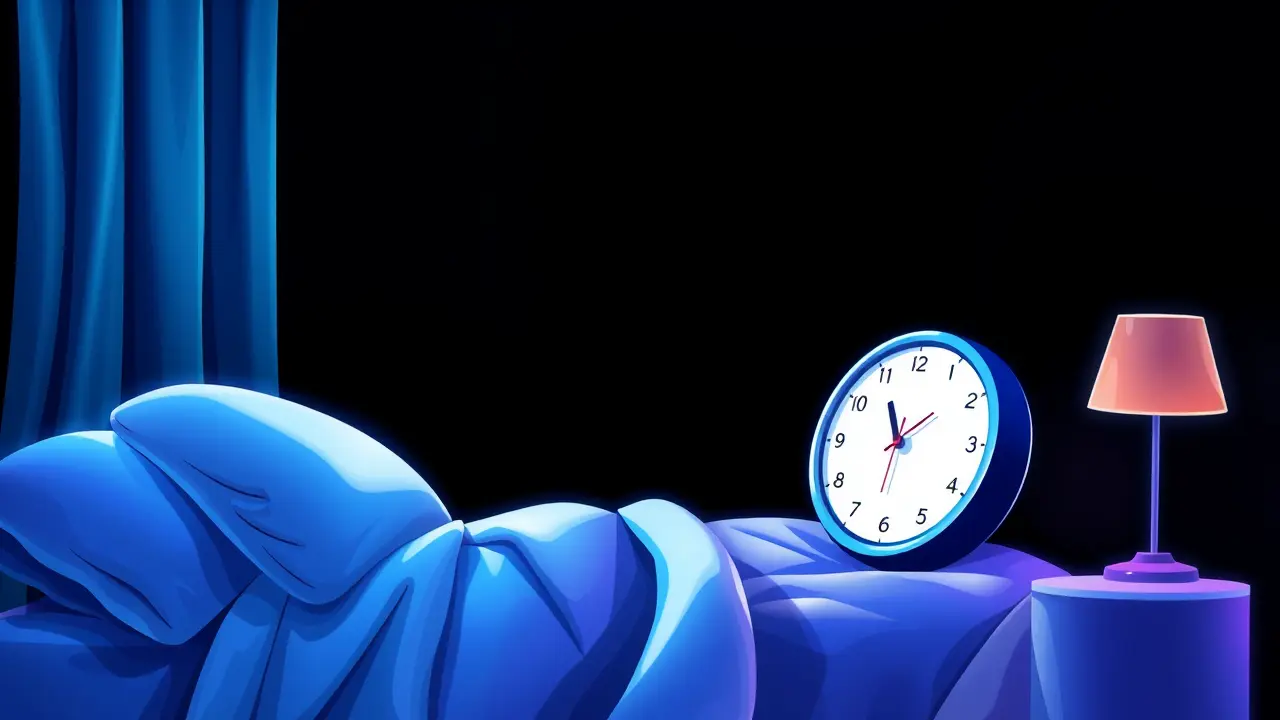
ScienceneuroscienceSleep and Consciousness
Feeling the Effects of the Time Change? We Asked Experts How to Get Back on Track
LA
Laura Bennett
14 hours ago7 min read1 comments
That groggy, out-of-sync feeling you’re wrestling with this week isn’t just in your head; it’s a collective, biological groan echoing through neighborhoods and offices, a shared human experience born from the simple, yet profoundly disruptive, act of turning our clocks back. We all know the drill—the promised ‘extra’ hour of sleep that somehow never materializes as true rest, replaced instead by a week of staring at the ceiling at 4 a.m. and fighting a foggy-headed battle through the afternoon.But why does this seemingly small shift, this mere sixty-minute adjustment, send our internal world into such chaos? I’ve spent the last few days speaking with sleep specialists, neurologists, and, perhaps most tellingly, ordinary people from all walks of life, and the consensus is clear: we are fundamentally at war with our own biology. Our circadian rhythm, that ancient, internal metronome tuned to the rise and fall of the sun, isn't a simple preference; it's a deeply ingrained, cellular-level process governing everything from hormone release and body temperature to cognitive sharpness and mood stability.Dr. Anya Sharma, a chronobiologist I spoke with, explained it to me not as a clock, but as a symphony.'Imagine every organ, every cell in your body, is an instrument in an orchestra,' she said, her voice calm and measured. 'The circadian rhythm is the conductor.Daylight saving time is like suddenly asking that conductor to change the tempo mid-performance. The violins might speed up, the cellos get confused, and the woodwinds are lagging behind.The result isn't music; it's dissonance. ' This dissonance has measurable consequences.Studies consistently show a spike in workplace accidents, a rise in heart attacks and strokes, and an increase in mood disorders in the days following the time change. It’s a public health issue disguised as a minor inconvenience.So, how do we retune the orchestra? The advice is less about quick fixes and more about gentle, consistent coaxing. Dr.Sharma and others advocate for a multi-pronged approach that begins with light, the conductor's primary baton. Get outside for at least thirty minutes in the morning, even if it's cloudy; that morning light is a potent signal to your brain that the day has begun, suppressing melatonin and boosting alertness.Conversely, in the evening, it’s crucial to dim the lights and, most importantly, put away the blue-light-emitting screens at least an hour before bed. I heard from Mark, a software engineer and father of two, who described his family's new ritual of 'screen sundown' where phones and tablets are charged in the kitchen, not the bedroom.'The first few nights were a battle,' he admitted with a laugh, 'but now we read actual books or just talk. The difference in how quickly we fall asleep is unbelievable.' Another key is to respect your schedule. Even on the weekend, try to wake up and go to bed at roughly the same time.That post-time-change Sunday sleep-in might feel glorious, but it essentially jet-lags you further. Instead, if you're tired, opt for a short, 20-minute power nap in the early afternoon, but avoid napping too late in the day as it can steal from your nighttime sleep drive.Then there's the role of routine. Your body thrives on predictability.A warm, caffeine-free tea, a few minutes of light stretching or meditation, a hot shower—these can become powerful cues that signal to your brain and body that it's time to wind down. I spoke with Sarah, a nurse who works night shifts, a professional master of circadian manipulation.Her advice was practical and grounded: 'It's about controlling your environment. Blackout curtains are non-negotiable.A cool room temperature. And don't just lie in bed frustrated if you can't sleep.After twenty minutes, get up, go to another room, and do something quiet and boring until you feel sleepy again. You have to teach your brain that the bed is for sleep, not for anxiety.' The process isn't instantaneous. It can take most people, especially adults over 40 whose circadian rhythms are naturally less flexible, a full week or more to fully adjust.The goal isn't to fight the feeling, but to acknowledge it and work with your body's innate wisdom. It's a reminder that we are not separate from the natural world, but deeply intertwined with its rhythms, and that sometimes, the simplest act of aligning ourselves with the light and dark can be the most powerful medicine of all.
#featured
#daylight saving time
#circadian rhythms
#sleep disruption
#health tips
#time change effects
#expert advice
Stay Informed. Act Smarter.
Get weekly highlights, major headlines, and expert insights — then put your knowledge to work in our live prediction markets.
Related News
© 2025 Outpoll Service LTD. All rights reserved.
